By Ferruh Demirmen
As the adage, “There’s more than one way to skin a cat” goes, Turkish PM Tayyip Erdoğan recently found a remarkable way to respond to corruption allegations surrounding his administration. His reaction to the allegations was far from building public confidence.
When the corruption news implicating those close to Mr. Erdoğan broke out in the Turkish media on December 17, the number one question in Turkey was how the PM would react. After all, the sons of three cabinet ministers, a local mayor from his AK Party, the head of the state-owned Halkbank, a construction mogul close to the PM, and a businessman doing a clandestine gold-for-gas trade with Iran, were snatched from their homes in the early hours of the morning on charges of bribery and money laundering. All together 52 suspects were rounded up for questioning.
Images in the press of piles of dollar bills stuffed in shoe boxes and money-counting machines found in the homes of some of the accused were both riveting and nauseating.
All the indications were that Mr. Erdoğan had not been informed of the arrests in advance, and was caught by surprise.
Press news were raging with speculations that more arrests, involving others close to Erdoğan including his sons, were in the offing.
Accusing a “Criminal Gang”
The first reaction coming from an angry Erdoğan was to point to a ‘criminal gang.”
But not a criminal gang involved in bribe and thievery, as one might have expected. It was a “gang” with foreign connections, out to topple his government, he said.
Although Erdoğan did not name the illicit organization, it was widely known that the “gang” he alluded to was “Cemaat,” the organization of the reclusive Turkish Islamic clergyman Fethullah Gülen living in Pennsylvania.
Cynics observed that Erdoğan’s government had cooperated remarkably well with the Cemaat over the past 11 years in prosecuting, muzzling and imprisoning hundreds of military officers, writers, and academicians on trumped up charges of plotting to overthrow the government. It was like an alliance made in heaven. Now the Cemaat was an enemy.
Mr. Erdoğan’s charges of a criminal gang was reminiscent of an “interest lobby” that he claimed was responsible for the “Gezi Park” protests that erupted across Turkey, especially Istanbul, in May and June. A conspiracy orchestrated by the “interest lobby” was out to topple his government, he said at that time.
“He does no wrong, commits no ill, means no harm; but it is always someone else – a foreign hand, in fact – that is the problem,” mused observers, cynically.
“Clean-up” in the Police Establishment
Mr. Erdoğan knew that throwing salvos at others alone was not going to defuse the situation. His next move, surprisingly, was to fire the police bureau chiefs in Istanbul that were behind the arrests. Five police bureau chiefs were sacked on the spot and replaced by new appointees. The head of the Istanbul Police Department also lost his job. To expedite the replacement of the top policeman, Erdoğan had his new hand-picked new appointee flown from to Ankara to Istanbul in his private jet.
One of the first acts by the new appointee was to establish an army of inspectors to look into the police operations in Istanbul and bring charges, if deemed necessary.
The reaction of the PM to the police arrests was in sharp contrast to his reaction during the Gezi Park protests when the police acted with brutal force against the protestors. Six people lost their lives due to excessive force by the police. At that time the PM applauded the police, and even rewarded them for “job well done.”
That was the police charged with quelling street protests. The police that was the target of Erdoğan’s fury last week was law enforcement officers working with prosecutors on criminal investigations behind closed doors.
Interestingly, the PM did not ask the resignation of the cabinet ministers whose sons were implicated, or of the minister in charge of EU affairs Egemen Bağış, reportedly also embroiled in bribery.
With press reports that arrests may be made outside Istanbul as well, Erdoğan expanded the reshuffling of the police organization. Thirty more police chiefs, mainly in Istanbul and Ankara, were replaced. The government wanted to make sure there would be no further “surprise arrests.”
An angry Erdoğan also threatened to expel foreign envoys in Turkey for plotting against his government. “We don’t have to host you in this country,” fumed an animated PM. While not naming names, the barb was aimed at US ambassador Francis Ricciardone, who said that the US had warned Halkbank in the past about its connection to Iran.
It must have slipped the PM’s mind that his AK Party ascended to power in November 2002 with the full support and blessing of the US – a support that has remained virtually unabated till this day.
A Déjà Vu
A further development was the addition of two new prosecutors to the ongoing graft investigation in Istanbul. It was explained that the move was prompted by the “heavy load” in the investigation – notwithstanding that no such concern had been raised by the sitting prosecutor. The real purpose behind the move, however, observers noted, was to dilute the authority of the sitting prosecutor and derail the ongoing investigation.
This was a déjà vu. The move was reminiscent of the way the prosecutorial authority in the famous “lighthouse scandal,” also known as the “corruption of the century,” was seized by the appointment of two new prosecutors. The three sitting prosecutors handling that investigation were dismissed, and the indictment against the suspects (closely linked to the AK Party) was dropped by the new prosecutors for lack of evidence. The original prosecutors were then charged with “misconduct.” (All 3 were exonerated). That was in 2011.
The lighthouse case involved donations to an Islamic charity, had its roots in Germany, and ended with convictions in Germany. According to German authorities, the main culprits were in Turkey.
Extreme Measure
As the crisis deepened, the next act by the PM and the government was even more extraordinary. In a midnight move, a law enforcement by-law was amended to require the police and the gendarmerie to inform their administrative superiors and chief prosecutor’s office before conducting investigative operations. Prosecutors conducting a probe were also required to receive consent from the chief prosecutor.
The new by-law violated the secrecy of law enforcement operations, effectively eroding the separation of judicial and executive powers.
Cynics tweeted – and cartoons in the press humored likewise – that the new curbs imposed on law enforcement was like warning the thieves before arresting them.
In the meantime, the press was barred from entering the Istanbul Police Department, and the PM instructed the provincial mayors to keep a tab on the local police.
Repercussions
The repercussions to the new by-law were swift. A number of legal entities including Turkey’s Union of Bar Associations and the Turkish Syndicate of Prosecutors lodged lawsuits with the Council of State for the annulment of the new by-law on Constitutional grounds, underscoring that such provisions can only be implemented in totalitarian regimes.
No sooner had the new by-law been put in effect, than the Istanbul prosecutor Muammer Akkaş released a bomb-shell written statement. Akkaş had prepared a summons/arrest list that he had given to the police on December 25 for instructions for a second wave of operation scheduled to take place after the New Year’s eve. But the police was not following his instructions, he said.
He had noticed leaks to the press, and was concerned that the evidentiary material in the probe would be tampered with.
The scale of financial irregularities involved in the second operation was reportedly massive, circa $100 billion, implicating 42 persons. Among the suspects was the PM’s son Bilal Erdoğan.
Akkaş said his probe was blocked, and he had been removed from the case. The copy of the summons/arrest warrant for Bilal Erdoğan, with the enforcement date marked as January 2, 2014, appeared in the press.
The PM was quick to denounce Akkaş, calling him a disgrace for the judiciary.
Soon after, the High Council of Judges and Prosecutors (HSYK) released a majority opinion backing Akkaş’ concerns, stating that the new by-law violated the Constitutional edict of the independence of the judiciary and the separation of powers.
What Now?
The high-stakes corruption allegations have rocked Turkey, with ramifications extending from politics to economics to public trust. It is a rapidly shifting ground. At the writing of this article, barely 10 days after the scandal broke out, the PM is in his seat, three ministers from the cabinet have resigned, and 10 new cabinet ministers have been replaced.
One of the resigned ministers, Erdoğan Bayraktar, in charge of environment and urban works and a long-time associate of the PM, said the PM had approved the construction projects that are under investigation, and should also resign. It was a serious charge from an ex-confidant.
All the while people have taken to the streets calling for the resignation of the government, the Council of State has issued an injunction to halt the implementation of the new by-law, and President Abdullah Gül bafflingly maintaining his silence. A sense of disbelief and political malaise has permeated the air.
Gül’s silence can perhaps be explained by the fact he himself was embroiled in corruption (“lost trillions”) allegations years ago. The case was not adjudicated in a court because of Gül’s parliamentary immunity.
At this point it is anybody’s guess whether the government will weather the scandal without further fallout. If it does, however, there is no doubt a thick cloud of suspicion and distrust will hang over the PM and his government.
Out of this sordid affair, one thing that stands out, inarguably, is the way that the PM Erdoğan has handled the situation. In a democracy where the rule of law prevails, and public trust counts, the scandalous details that surfaced, while not yet proven in a court of law, would have been more than sufficient for a PM and the government to resign. This is what credibility and accountability is about.
Instead, the PM has resorted to unusual and extraordinary measures to hold on to power that failed to build public confidence. Cursing others and blaming conspiracies and foreign elements for imaginary coup attempts makes no sense. None of this augurs well for Turkish democracy.

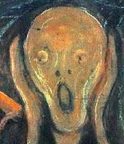

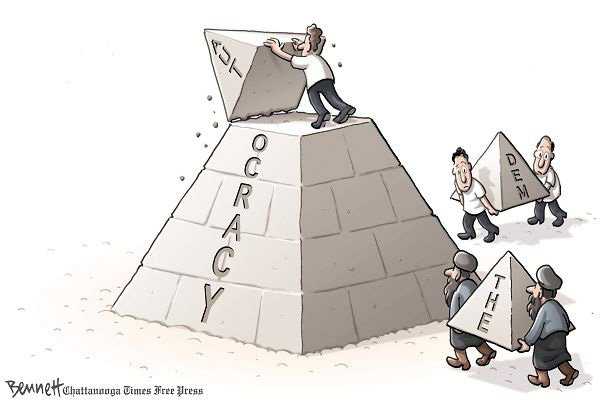

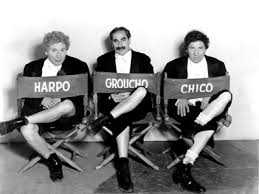
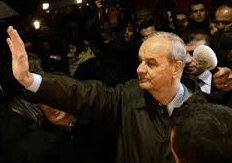
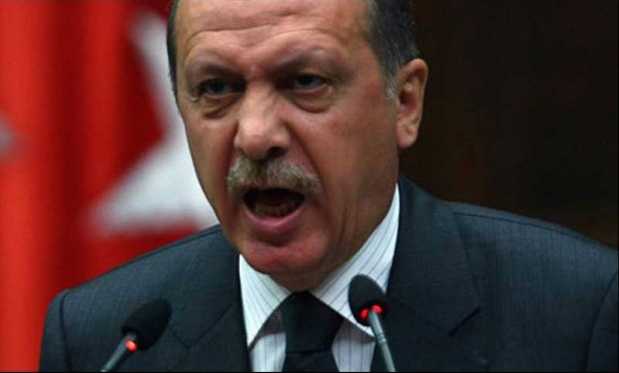

By Morton Abramowitz, Eric Edelman and Blaise Misztal, Updated: Thursday, January 23, 6:32 PM